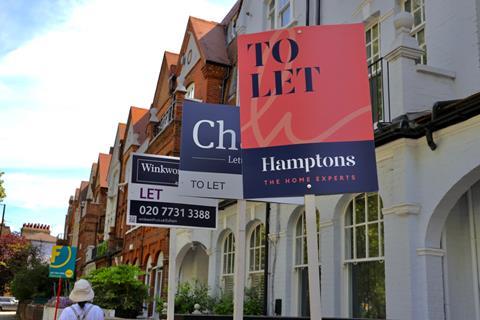
People still paying rent when they retire will need to have saved £398,000 to cover this cost, according to data from Standard Life.
This is an increase of £7,000 from last year, when those renting in retirement needed £391,000.
The findings were published this week by Standard Life, which used Office for National Statistics (ONS) data to project rental costs over a 20-year retirement period, based on an average annual rent increase of 3.7% since 2015.
Claire Altman, managing director at Standard Life, said it was vital that renters plan how they will meet housing costs in later life.
“While saving more for retirement is increasingly essential, regardless of whether someone plans to rent or own, the reality is that for many, homeownership may no longer be feasible,” she said.
“For those who do expect to be renting in retirement, it will be important to start planning how they will meet these housing costs, especially if rent prices continue to increase, as seen in recent years.
“When planning for retirement, it’s crucial to consider how essential expenses like housing will be covered. If being mortgage-free is not an option, products like annuities, which offer a guaranteed income for life, may help ensure ongoing costs such as rent and essential bills are met.”
“The industry, government and regulators all have a key role to play to support individuals in understanding how housing decisions, whether buying, renting, downsizing or relocating, can impact retirement outcomes.”
Claire Altman, Standard Life
She added that the steady rise in rental costs over the past decade highlights how important it is for pension savings to keep pace.
Altman explained: “Financial resilience typically reduces later in life, so having a robust and well-planned income strategy becomes even more important. As the lines between housing and retirement become increasingly intertwined, it’s clear that a holistic approach is needed.
“For some, prioritising homeownership may be a key goal, while for others, focusing on building pension wealth will take precedence. The critical point is that both are long-term financial commitments that require careful planning.
“The industry, government and regulators all have a key role to play to support individuals in understanding how housing decisions, whether buying, renting, downsizing or relocating, can impact retirement outcomes.”
It comes as the Pensions Commission has begun its work on ways to improve retirement income adequacy. The Association of Member Nominated Trustees has called for the commission to pay particular attention to housing costs.
Rising house prices continue to pose a challenge to people still trying to get on the housing ladder, as the latest ONS data shows that average UK house prices rose 6.4% over the past year, reaching £271,000 in March 2025.
Standard Life’s recent Retirement Voice report revealed that 12% of adults expect to still be renting when they retire.
The pension provider has also previously found that 45% of adults it surveyed supported the idea of accessing pension savings early to get on the property ladder – but 48% acknowledged the long-term financial consequences of doing so.
One in three respondents said they would be willing to increase pension contributions if it meant improving their chances of buying a home.

























